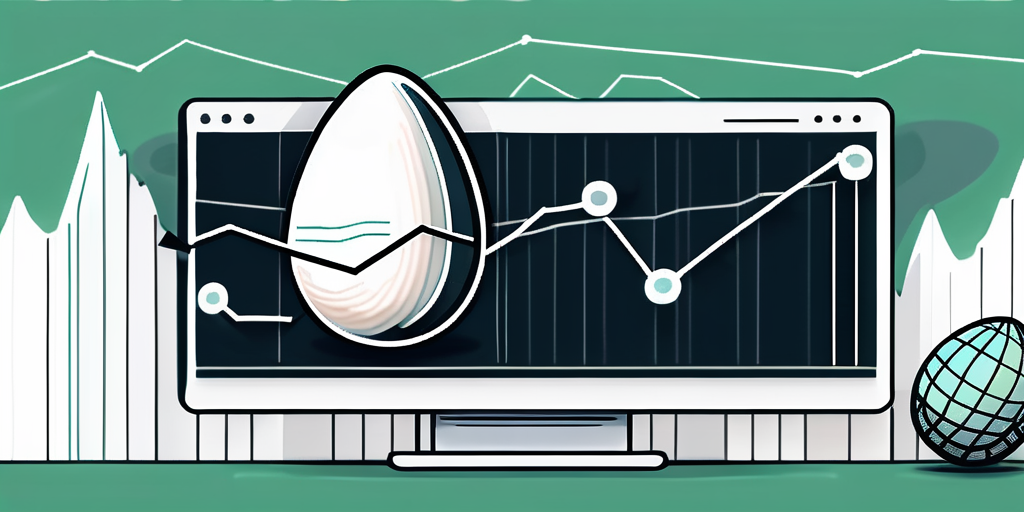
5 Foundations of Personal Finance
Managing personal finances is an important aspect of ensuring a secure and successful future. It is the foundation upon which financial stability and freedom are built. In this article, we will explore the five essential foundations of personal finance that can help you navigate the complex world of money management with confidence and ease.
Understanding the Basics of Budgeting
One of the key pillars of personal finance is budgeting. Simply put, budgeting involves tracking your income and expenses to determine how much money you have coming in and how much you are spending. By creating a budget, you gain a clear understanding of where your money is going, allowing you to make informed decisions about your spending habits.

A well-planned budget helps you prioritize your expenses, ensuring that you cover your essential needs such as housing, food, and utilities before allocating funds for discretionary expenses. It also enables you to save for future goals, such as a down payment on a house or an emergency fund.
To create a budget, start by listing all your sources of income and subtracting your fixed expenses. Next, allocate funds for variable expenses and savings. Be sure to review and adjust your budget regularly to accommodate any changes in your financial situation.
Moreover, budgeting can also help you identify areas where you may be overspending or where you can cut back to increase your savings. By tracking your expenses diligently, you may discover patterns in your spending habits that can be adjusted to meet your financial goals more effectively.
Additionally, creating different categories within your budget, such as groceries, transportation, entertainment, and debt repayments, can provide a clearer picture of where your money is going. This detailed breakdown can help you see which areas of your budget may need more attention or adjustments to stay on track.
Building a Strong Emergency Fund
Life is full of unexpected challenges, and having a robust emergency fund is crucial for financial stability. An emergency fund acts as a safety net, providing you with the necessary funds to cover unforeseen expenses like medical emergencies, car repairs, or job loss.
Experts recommend setting aside three to six months’ worth of living expenses in your emergency fund. Start by saving a small portion of your income each month until you reach your target. Consider keeping your emergency fund in a separate savings account to minimize the temptation of dipping into it for non-essential expenses.
Having a solid emergency fund not only provides peace of mind but also protects you from falling into high-interest debt when unexpected expenses arise.
It’s important to regularly review and adjust your emergency fund as your financial situation changes. For example, if you receive a salary increase or experience a decrease in expenses, consider increasing the amount you contribute to your emergency fund. Additionally, if you dip into your emergency fund for any reason, make it a priority to replenish the withdrawn amount as soon as possible to ensure you’re prepared for future emergencies.
Another strategy to consider is automating your emergency fund contributions. Setting up automatic transfers from your checking account to your designated emergency fund savings account can help ensure consistent and disciplined savings. By treating your emergency fund contribution like any other bill, you prioritize building financial security for unexpected events.
Investing for the Future
Investing is a powerful tool for building long-term wealth. While saving money in a traditional savings account is important, investing allows your money to grow over time through compound interest and returns.

Before you start investing, it’s essential to educate yourself on different investment options and their associated risks. Consider speaking with a financial advisor to help you develop an investment plan that aligns with your goals and risk tolerance.
Diversification is key to successful investing. By spreading your investments across various asset classes, such as stocks, bonds, and real estate, you can reduce the impact of market volatility and increase your chances of earning favorable returns.
Another important aspect to consider when investing is your investment time horizon. This refers to the length of time you expect to hold an investment before needing the funds. Generally, the longer your time horizon, the more risk you can afford to take because you have more time to recover from any potential losses.
Furthermore, staying informed about the market trends and economic indicators can help you make more informed investment decisions. Keeping an eye on interest rates, inflation rates, and geopolitical events can provide valuable insights into the direction of the market.
Managing Debt Wisely
In today’s society, debt has become a common part of our financial lives. While it can be a useful tool, particularly when used to invest in assets like a home or education, managing debt is crucial to avoid a debt trap and maintain a healthy financial standing.

Start by understanding the different types of debt you have, such as credit cards, student loans, or mortgages. Prioritize paying off high-interest debts first, as they can quickly accumulate and become a financial burden.
Create a repayment plan that allows you to make consistent payments while still covering your essential expenses. Consider techniques like the debt snowball or debt avalanche methods to accelerate your debt payoff journey.
Furthermore, it’s essential to regularly review your budget and track your spending to identify areas where you can cut back and allocate more funds towards debt repayment. Making small sacrifices in your daily expenses can add up significantly over time and help you pay off your debts faster.
Another effective strategy is to explore debt consolidation options, where you combine multiple debts into a single loan with a lower interest rate. This can simplify your repayment process and potentially reduce the overall amount you need to pay back, saving you money in the long run.
Cultivating Healthy Spending Habits
Developing healthy spending habits is essential for maintaining a balanced financial life. It involves being mindful of your spending choices and making intentional decisions that align with your financial goals.
One effective way to cultivate healthy spending habits is to differentiate between needs and wants. Before making a purchase, ask yourself if it is a necessary expense or something you simply desire. Understanding the difference can help you avoid impulsive buying and save money in the long run.
It’s also vital to periodically review your spending habits to identify areas where you can cut back or find more affordable alternatives. Small changes, such as brewing your coffee at home or cooking meals instead of eating out, can add up to significant savings over time.
Moreover, another crucial aspect of developing healthy spending habits is setting realistic financial goals. Whether it’s saving for a vacation, a down payment on a house, or retirement, having clear objectives can motivate you to make smarter spending decisions. By visualizing your goals and tracking your progress, you can stay focused and disciplined in your financial journey.
Additionally, seeking financial education and guidance can greatly benefit your efforts to cultivate healthy spending habits. Consider attending workshops, reading books on personal finance, or consulting with a financial advisor to gain valuable insights and strategies. Learning about investment options, retirement planning, and debt management can empower you to make informed decisions and optimize your financial resources.
In conclusion, by understanding the basics of budgeting, building a strong emergency fund, investing wisely, managing debt, setting realistic financial goals, seeking financial education, and cultivating healthy spending habits, you can lay a solid foundation for your personal finance journey. Remember that personal finance is a continuous learning process, so adapt and evolve your financial strategies as your circumstances change. With dedication and perseverance, you can achieve financial well-being and enjoy a more secure future.

